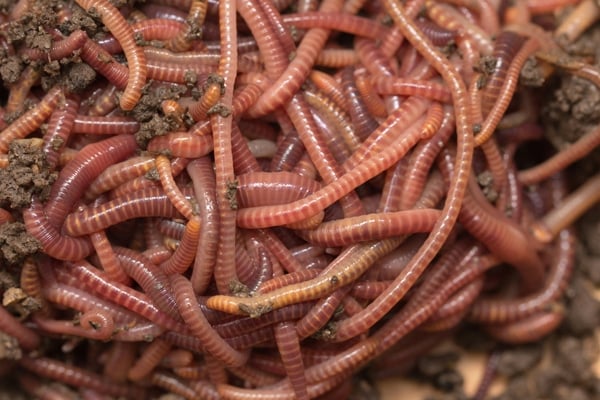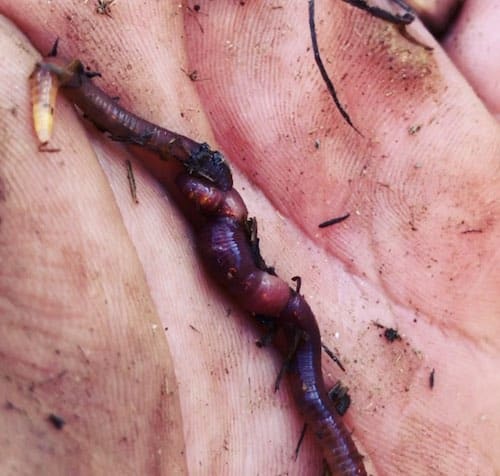Why Lake Hickory Bait Is the Ideal Choice for Local Bait
Why Lake Hickory Bait Is the Ideal Choice for Local Bait
Blog Article
Open the Secrets of Red Wigglers: Your Guide to Composting Success
The assimilation of red wigglers into composting practices presents a substantial chance for boosting dirt wellness and advertising sustainability. Recognizing their requirements and behaviors is crucial for maximizing their capacity, from setting up an appropriate worm container to feeding them the ideal materials.

What Are Red Wigglers?
(Lake Rhodhiss Bait)Red wigglers, scientifically recognized as Eisenia fetida, are a types of earthworm primarily made use of in composting because of their remarkable capability to break down natural matter successfully. These worms are defined by their reddish-brown pigmentation and a segmented body, generally gauging in between 3 to 4 inches in length. Unlike various other earthworm species, red wigglers prosper in rich, organic settings, making them optimal for vermicomposting systems.
Belonging To The United States And copyright, they are typically found in rotting fallen leaves and compost heap, where they play an essential function in nutrient recycling. Their adjustment to residing in a wet, aerobic atmosphere enables them to take in huge quantities of natural waste, damaging it down right into nutrient-rich spreadings that improve dirt health and wellness.
Red wigglers duplicate swiftly, with a solitary worm qualified of generating numerous cocoons each week, each having multiple hatchlings. Understanding the biology and behavior of red wigglers is important for maximizing their potential in composting applications.
Advantages of Making Use Of Red Wigglers
Using the power of red wigglers in composting offers numerous advantages that boost dirt wellness and advertise sustainable waste monitoring. These remarkable microorganisms successfully damage down raw material, transforming kitchen scraps and yard waste right into nutrient-rich vermicompost. This completed product is extremely useful for plant growth, as it improves dirt framework, boosts wetness retention, and enhances nutrient accessibility.

(Red Wiggler Express)In addition, the existence of red wigglers in your composting system can accelerate the composting procedure, creating top notch compost in a portion of the time contrasted to standard methods. The spreadings created by these worms are additionally including valuable microbes that even more improve the soil ecosystem.
Establishing Up Your Worm Bin
Developing an effective worm container is an uncomplicated process that can substantially enhance your composting efforts. Worm containers can be made from plastic storage containers, wood boxes, or readily available worm bins.
Following, prepare the bedding material, which serves as the worms' habitat. A mix of shredded newspaper, cardboard, and coconut coir functions well, offering a comfy atmosphere for the worms.

Feeding Your Red Wigglers
To make certain the health and wellness and efficiency of your red wigglers, it is important to provide them with a well balanced diet plan that meets their dietary needs. Red wigglers grow on a diverse selection of organic products, which not just supply essential nutrients however also advertise effective composting.
Beginning by incorporating kitchen area scraps such as vegetable peels, fruit cores, and coffee premises. Prevent citrus fruits, onions, and garlic, as these can be detrimental to worm health and wellness. Additionally, present shredded paper, cardboard, and dry fallen leaves to create a well-aerated atmosphere.
Feeding regularity should be checked; typically, worms can eat half their body weight in food weekly. It is important to stay clear of overfeeding, as excess food can result in undesirable odors and draw in parasites. A great practice is to add food in tiny amounts, enabling worms to refine it before introducing extra.
Maintaining wetness degrees is likewise vital; the bed linen needs to perspire however not soaked. Lastly, make sure to routinely inspect the temperature level and pH levels of the container to guarantee an ideal setting for your red wigglers, ultimately improving their composting performance.
Harvesting and Using Garden Compost
An effective composting procedure with red wigglers culminates in the rich, dark compost referred to as vermicompost, which can significantly boost dirt health and wellness and plant growth. Harvesting this nutrient-dense material generally occurs every three to six months, relying on the dimension of your system and the amount of raw material being refined.
To harvest, gently different the compost from the worms and any undecomposed products. One efficient method involves relocating the components of the bin Lake Rhodhiss Bait away and adding fresh bedding and food to the void, encouraging the worms to move. After a couple of days, the compost can be collected from the contrary side.
It is vital to make use of vermicompost correctly to optimize its benefits. By incorporating vermicompost into your horticulture regimen, you not only reuse organic waste however additionally create a successful ecological community that supports sustainable gardening practices.
Conclusion
In recap, red wigglers offer as remarkable allies in composting efforts, transforming organic waste into nutrient-rich vermicompost. By understanding the optimal conditions for their environment, feeding needs, and garden compost harvesting strategies, garden enthusiasts can boost dirt health and wellness and promote plant vitality.
Report this page